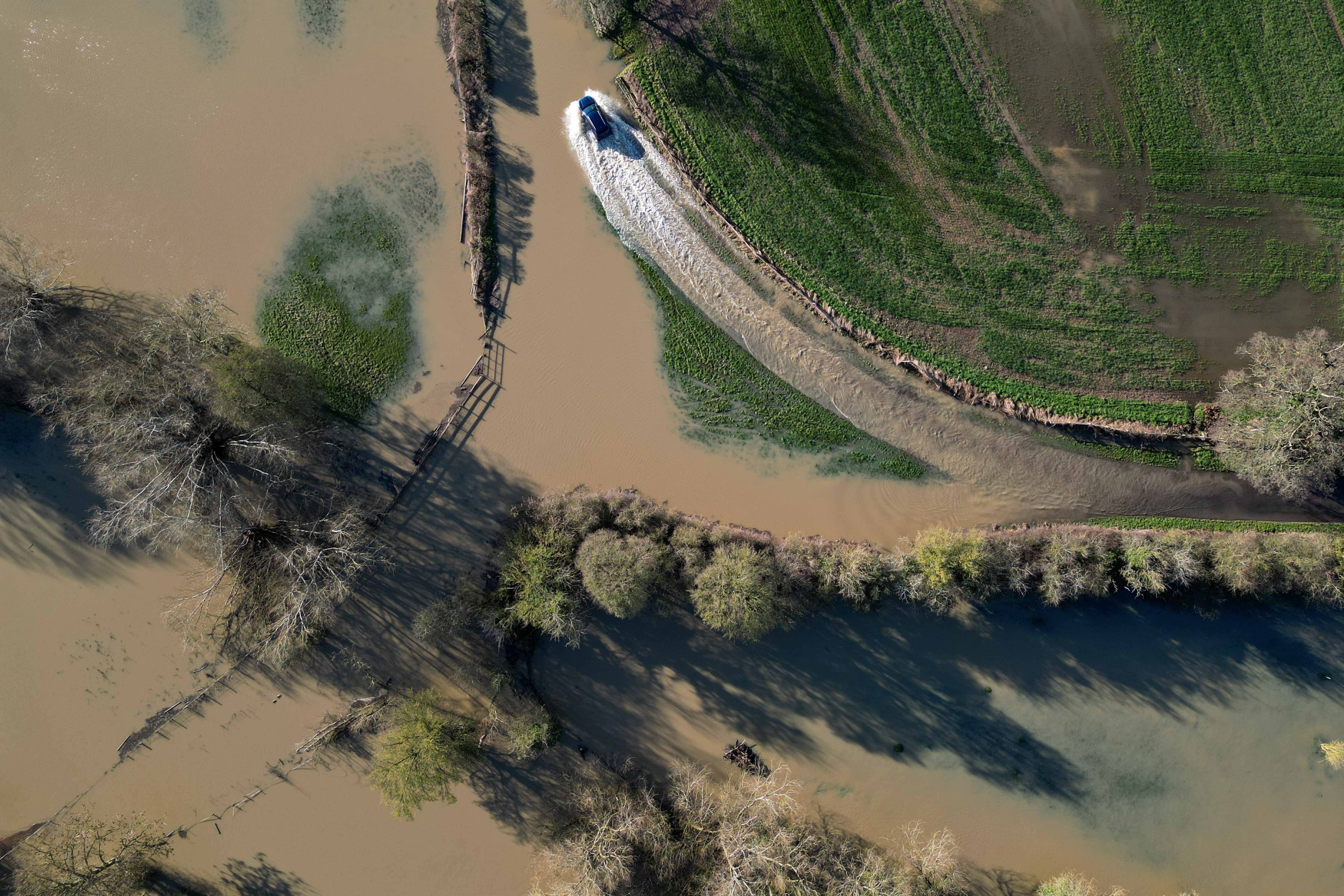Environment Secretary in flood defences vow as Met Office warns of wet winter
The autumn months are expected to be wetter than usual, the Met Office said.

Your support helps us to tell the story
From reproductive rights to climate change to Big Tech, The Independent is on the ground when the story is developing. Whether it's investigating the financials of Elon Musk's pro-Trump PAC or producing our latest documentary, 'The A Word', which shines a light on the American women fighting for reproductive rights, we know how important it is to parse out the facts from the messaging.
At such a critical moment in US history, we need reporters on the ground. Your donation allows us to keep sending journalists to speak to both sides of the story.
The Independent is trusted by Americans across the entire political spectrum. And unlike many other quality news outlets, we choose not to lock Americans out of our reporting and analysis with paywalls. We believe quality journalism should be available to everyone, paid for by those who can afford it.
Your support makes all the difference.The Environment Secretary said the emergency response to flooding is being bolstered as the Met Office warned of a wetter-than-average winter.
The autumn months are expected to be wetter than usual, and many areas – particularly the west of England – have already seen 100% of their average September rainfall, the Met Office said.
A total of 5.5 million properties in England are at risk from flooding and the country has just experienced the wettest 18 months on record, to February 2024, following extreme weather including Storms Babet and Ciaran, the Department for Environment Food and Rural Affairs (Defra) said.
Flooding devastates communities and businesses across the country. For far too long the delivery of flood schemes has been too slow and left communities underwater
A new Floods Resilience Taskforce met on Thursday to discuss how to speed up and co-ordinate flooding preparation and resilience between central government, local authorities and community responders, and emergency services.
The taskforce brought together Environment Secretary Steve Reed, floods minister Emma Hardy, the Ministry of Housing, Communities and Local Government, Home Office, Cabinet Office, the Environment Agency, the Met Office, local resilience forums, mayoral offices, emergency responders and the National Farmers Union.
Mr Reed said: “Flooding devastates communities and businesses across the country. For far too long the delivery of flood schemes has been too slow and left communities underwater.
“That is why the new Government is acting now to speed up the building of flood defences and bolster our emergency response.”
The climate crisis is the greatest global challenge we currently face, and as an eyewitness to extreme flooding myself, I know the devastating impact these events can have on our livelihoods
Ms Hardy said: “The climate crisis is the greatest global challenge we currently face, and as an eyewitness to extreme flooding myself, I know the devastating impact these events can have on our livelihoods.
“As chair of the Floods Resilience Taskforce, I will work closely with our partners to ensure projects remain on track and not only protect homes but create more green jobs and drive investment in our towns.”
Environment Agency teams have been prioritising the construction, maintenance and repair of key flood defences – including the Cockett Wick seawall in Essex, which will ensure 3,000 homes and businesses are protected better after a £12 million investment, Defra said.
Caroline Douglass, executive director for flood and coastal risk management at the Environment Agency, said: “Protecting people and communities is our top priority, which will only become more pressing as climate change brings more extreme weather and rising sea levels.
“This new taskforce will look at the range of resilience measures available to provide options to reduce flood risks in more communities – and we will play our part to ensure essential projects are delivered across the country.”
Pumps have been deployed at 10 strategic depots in vulnerable regions around the country to ensure they can be rolled out rapidly as and when required.
And the Environment Agency said it has conducted 170,000 checks on assets in the past year – up from 100,000 in an average year. It has also increased its spend on asset maintenance and repair to £236 million, up from £200 million.
The taskforce’s next steps will include: Continuing to monitor areas showing sensitivity to rainfall and how they recover ahead of the winter flood season; identifying how government, emergency services and local resilience forums can better share lessons learnt from recent flooding events, with the introduction of best practice guidance to be considered; and assessing how public awareness of the role and benefits of flood warnings can be improved.
The next meeting of the taskforce will take place in early 2025 and will discuss longer-term oversight of wider flood resilience strategy and investment, as well as any learnings on the response to major flooding.